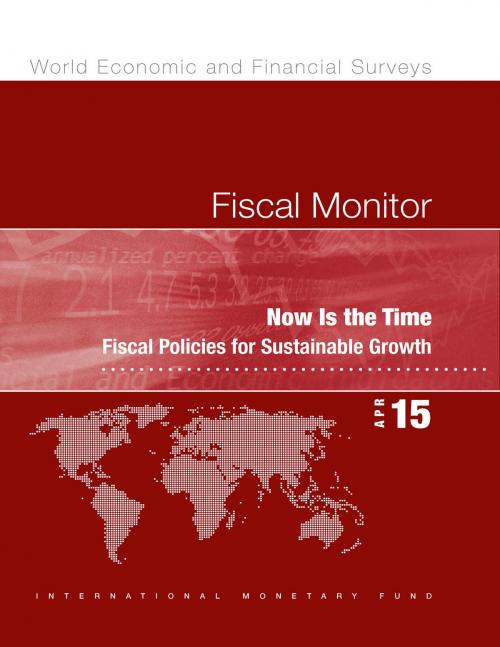Fiscal Monitor, April 2015
Now Is the Time: Fiscal Policies for Sustainable Growth
Business & Finance, Economics, Public Finance, Money & Monetary Policy, Finance & Investing, Taxation| Author: | International Monetary Fund. Fiscal Affairs Dept. | ISBN: | 9781475544916 |
| Publisher: | INTERNATIONAL MONETARY FUND | Publication: | April 15, 2015 |
| Imprint: | INTERNATIONAL MONETARY FUND | Language: | English |
| Author: | International Monetary Fund. Fiscal Affairs Dept. |
| ISBN: | 9781475544916 |
| Publisher: | INTERNATIONAL MONETARY FUND |
| Publication: | April 15, 2015 |
| Imprint: | INTERNATIONAL MONETARY FUND |
| Language: | English |
Fiscal risks remain significant in both advanced and emerging market and developing economies. Fiscal policy continues to play an essential role in building confidence and, where appropriate, sustaining aggregate demand. According to this issue of the Fiscal Monitor, strengthening fiscal frameworks—particularly to manage public finance risks and ensure debt sustainability—must be part of the fiscal policy response. Countries should seize the moment created by lower oil prices to start the process of energy taxation and energy subsidy reform. Finally, fiscal policy can contribute substantially to macroeconomic stability, through the workings of automatic stabilizers. By doing so, fiscal policy can also unlock significant growth dividends.
Fiscal risks remain significant in both advanced and emerging market and developing economies. Fiscal policy continues to play an essential role in building confidence and, where appropriate, sustaining aggregate demand. According to this issue of the Fiscal Monitor, strengthening fiscal frameworks—particularly to manage public finance risks and ensure debt sustainability—must be part of the fiscal policy response. Countries should seize the moment created by lower oil prices to start the process of energy taxation and energy subsidy reform. Finally, fiscal policy can contribute substantially to macroeconomic stability, through the workings of automatic stabilizers. By doing so, fiscal policy can also unlock significant growth dividends.















